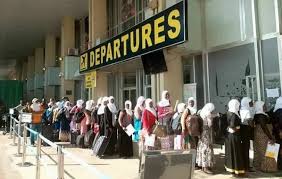A powerful magnitude 6 earthquakes struck eastern Afghanistan on Sunday night, causing massive destruction and killing over 1,400 people, with thousands more injured, officials say.
The hardest-hit province is Kunar, where entire villages made of mud-brick homes were destroyed, leaving many trapped under rubble.
Neighboring provinces Nangarhar and Laghman also reported casualties and damage.
The quake hit late at night when most people were asleep, making the impact even more deadly as roofs collapsed on residents.
A strong aftershock of magnitude 5.2 further rattled the region on Tuesday, causing additional fear but no immediate new damage.
Rescue workers, including Taliban soldiers and local volunteers, are racing against time to find survivors in remote and mountainous areas.
Difficult terrain and landslides have blocked many roads, forcing helicopters to airlift commandos into inaccessible villages to evacuate the injured.
The United Nations and humanitarian agencies have warned that the death toll could rise as many remain trapped, and hundreds of thousands of people are affected by the disaster.
The UN’s resident coordinator for Afghanistan, Indrika Ratwatte, called the situation a race against time and urged the international community for urgent aid.
Despite the Taliban’s request for help, the response is hampered by political challenges, including reduced funding and many countries’ reluctance to support the Taliban regime. Some aid has arrived from neighboring countries like Iran, Pakistan, and China, while the UK has pledged emergency assistance.
Afghanistan frequently experiences earthquakes due to its location on active tectonic plates in the Hindu Kush mountains, but poor construction and ongoing crises have made the country vulnerable.
The quake is the third major one since the Taliban took over in 2021, which has coincided with cuts in international aid and worsening humanitarian conditions.
Medical facilities are overwhelmed, with many damaged or closed due to funding shortages. Injured survivors often face long, difficult journeys to reach hospitals.
Food and shelter are scarce, adding to the hardship for those displaced by the quake.
The disaster compounds existing struggles in Afghanistan, including drought, conflict, and economic collapse, threatening the lives of many in already fragile communities.



